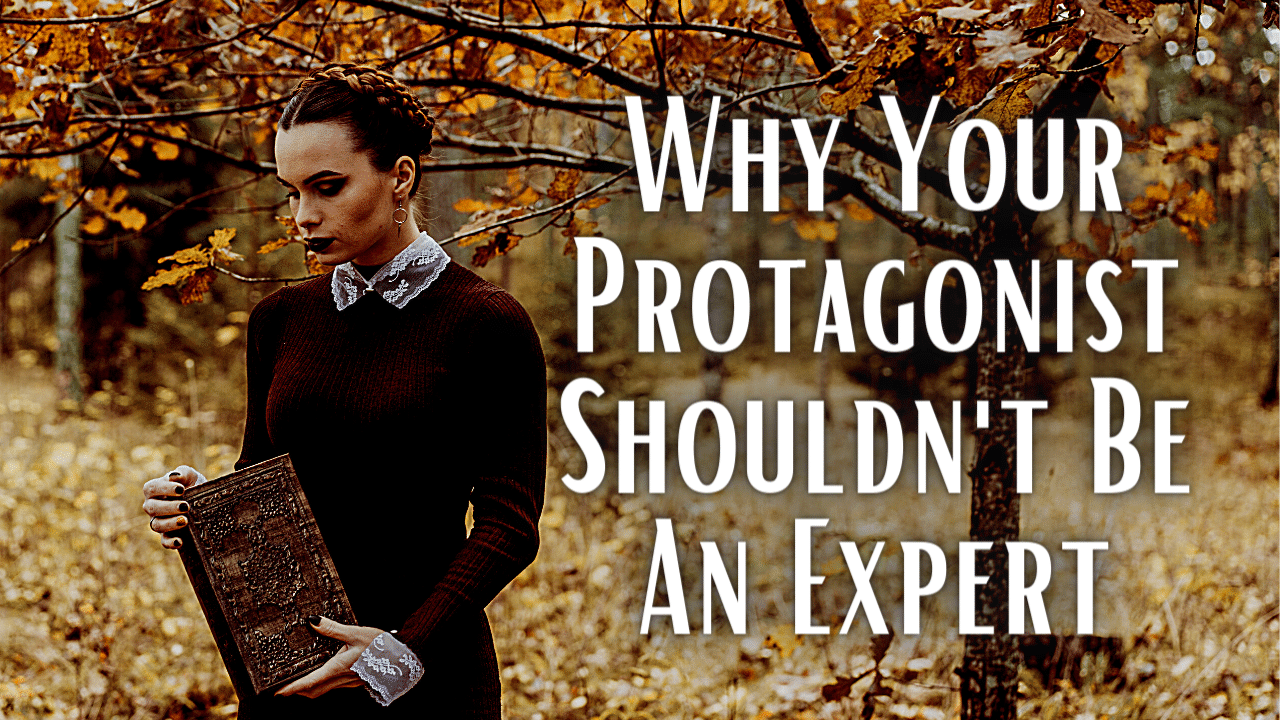As an Amazon Associate I earn from qualifying purchases.
Written by JJ Barnes
An expert Protagonist is a character who is advanced and specalised in a subject unfamiliar to your audience. You will spend the majority of the time with this character and seeing events through their eyes.
In this post I’ll be explaining why your an expert Protagonist can alienate your audience, and alternative ways to build an expert Protagonist.
Writing Your Expert Protagonist Learning With Your Audience
If you need your character to be an expert in any subject, they can be. But you need to take your audience on that journey with them.
For instance, Harry Potter doesn’t start the story as an expert protagonist. He knows even less than Hermione, a muggle born. This means that when he’s presented with anything in the magical world he has to ask about it. Harry learns about the world and the magic. As he learns, the audience learns too.

If Harry had been born and raised in the magical world then explaining the history of Voldemort, how magic works, what happens at Hogwarts etc, would feel clunky. It would come out as an info dump written just for the audience. An info dump only exists for the story to make sense, it’s not entertaining or natural.
However, by learning alongside Harry, the information you need for the story to make sense is humanised. It’s not just a block of information, it’s relatable. Harry doesn’t know it, the audience doesn’t know it, and you learn together. You also only learn what’s needed in that moment, because that’s all Harry needs in that moment. You’re never overwhelmed by too much information in one go.

Emotionally Connecting To The Expert Protagonist
If your audience can emotionally connect to your Protagonist, they’ll be more emotionally invested in seeing their story through to the end. They care about the character so they stick around to see if they get what they want.
An expert protagonist in a subject that is completely unrelatable to your audience, will create a disconnect. They’ll move through a world that’s unfamiliar to your audience with a confidence that your audience couldn’t experience.
However, if you go on that journey with them, it’s different. Watching someone learn a new thing in a new world, even if it’s a magical thing in a fantasy world, is relatable. We’ve all been new, we’ve all been outsiders. We’ve all had to learn about how to function in a situation we are unfamiliar with. It’s not the knowledge they’re gaining that your audience will connect to, it’s the process of gaining it.

The Mentor Character
In order for your character to learn, they need somebody to learn from. This is where you use your “mentor” character.
The mentor is the person who has existed in that world for a long time, and knows everything that your will-be-expert Protagonist needs to know. It’s Yoda and Obi Wan for Luke Skywalker, Hagrid, Ron and Dumbledore for Harry Potter.
Giving your Protagonist a person who they care about and trust, and who cares about them, to learn from allows those conversations to happen naturally. As they move through the new world they find themselves in, fantasy or otherwise, the new things they encounter can be explained as they come up.
In Buffy The Vampire Slayer, when Buffy first starts at at Sunnydale High, Cordelia acts as a mentor before that role is taken by Willow and Xander for surviving the school, and by Giles for surviving the vampires. The audience learns about the school and the world Buffy is new to at the same time as Buffy.
Keeping That Connection With Your Expert Protagonist
As your story progresses, your character can become an expert. Your audience will never be an amazing wizard, an incredible vampire slayer, or one with The Force, but that’s okay. They’ve experienced the journey with your Protagonist.
The understanding will move from being a new outsider who needs to learn, to being confident and capable. But it’s the emotional connection to their personality, hopes and dreams and vulnerabilities, that your audience stays rooted to. So keep those emotions alive, focus on those feelings above any of the magic or knowledge, and your audience will hold that connection.
More From JJ Barnes:
I am an author, filmmaker, artist and youtuber, and I am the creator and editor of The Table Read.
You can find links to all my work and social media on my website: www.jjbarnes.co.uk
Buy my books: www.sirenstories.co.uk/books
Follow me on Twitter: @JudieannRose
We strive to keep The Table Read free for both our readers and our contributors. If you have enjoyed our work, please consider donating to help keep The Table Read going!
Amazon and the Amazon logo are trademarks of Amazon.com, Inc, or its affiliates.


